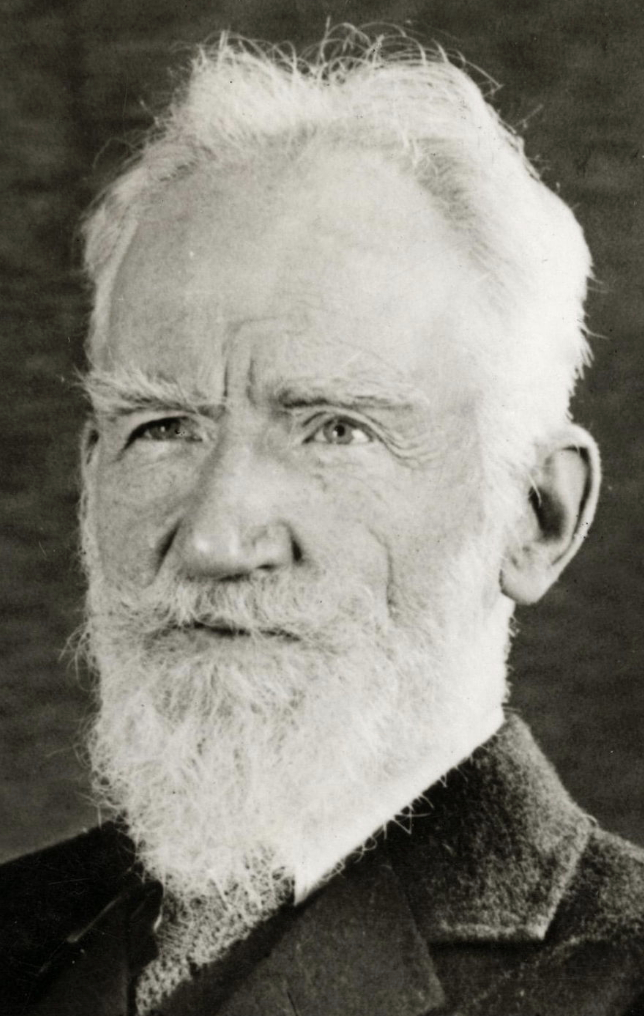On this date in 1856, George Bernard Shaw was born in Dublin, Ireland. After his parents separated, Shaw moved to London at age 20, where he built a long, distinguished and often controversial career as a critic, journalist, stage director, women’s rights advocate, war critic, religion critic and, most notably, playwright. Shaw wrote over 50 plays ranging from tragedies to comedies to powerful social critiques. Some of his most famous productions include “Man and Superman” (1903), “Saint Joan” (1923), “Caesar and Cleopatra” (1901), “Major Barbara” (1905) and “Pygmalion” (1913). Shaw’s strong allegiance to socialism as a means to improve the lives of the working class was evident throughout much of his literary and dramatic work.
Shaw, along with fellow freethinkers Beatrice and Sidney Webb and others had leadership roles in the Fabian Society, a socialist movement which attracted Bertrand Russell, Virginia Woolf and Annie Besant. Together with atheist Graham Wallas and the Webbs, Shaw co-founded the London School of Economics in 1895 to promote “the betterment of society.” Shaw won the Nobel Prize (though he refused the monetary award) for his contribution to literature in 1925 and an Academy Award for Best Screenplay in 1938 for the film “Pygmalion.”
Shaw’s work sometimes overtly criticized religion, such as his play “Androcles and the Lion” (1912) and the short story “The Adventures of the Black Girl in Search for God.” (1938). While Shaw claimed to have become an atheist at age 10, he started to reject atheism and classify himself as a mystic. But throughout most of his life he remained critical of organized religion and especially the Christian church. “There is nothing in religion but fiction.” (Back to Methuselah, 1924)
Near the end of his long life, Shaw requested that “the form of a cross or any other instrument of torture or symbol of blood sacrifice” be omitted from all memorials to him. (D. 1950)
PHOTO: Shaw at 80.


